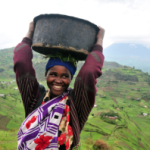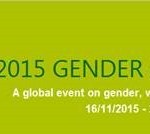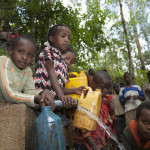Originally posted at https://www.ifpri.org/blog/looking-back-move-forward JULY 1, 2015 by AGNES QUISUMBING My 20th anniversary of working at IFPRI coincides with the 20th anniversary of the UN World Conference on Women in Beijing, where then First Lady Hillary Rodham Clinton proudly proclaimed that women’s rights are human rights. I had been hired to lead IFPRI’s research program on gender >> Read more
New publication: Rural Women and Empowerment Topic Guide
The Rural Women and Empowerment Topic Guide is now published and available at: http://www.evidenceondemand.info/topic-guide-womens-empowerment-in-a-changing-agricultural-and-rural-context It was prepared through the Evidence on Demand information hub (http://www.evidenceondemand.info/homepage.aspx) for DFID livelihood officers, but can be a resource for a wider audience working in rural areas. There are 5 sections and links to further gender related resources 1. >> Read more
Registration open for e-learning course on development evaluation and gender
UN Women Independent Evaluation Office, Claremont Graduate University and IOCE, within the EvalPartners initiative, with support from The Rockefeller Foundation and in partnership with UNEG, OECD/DAC EvalNet, ALNAP, UNICEF, ReLAC, IPEN and EvalMena, have announced the opening of the registration for the second 2015 cohort of the introductory e-Learning programme on Development Evaluation. which will close on 17 September 2015. Read details at http://gendereval.ning.com/profiles/blogs/register-now-to-e-learning-on-development-evaluation?xg_source=activity
New post on EnGendering Data Blog: Debunking the myth of female labor in African agriculture
EnGendering Data, a blog on improving data on the role of gender in agriculture, has a new post on female labor in African agriculture. Cheryl Doss shares new studies that "offer our most detailed understanding to date of rural economies in Africa" and challenge the widely cited "fact" that women in Africa provide 60-80% of the labor in agriculture. >> Read more
30 fellowships available to attend ITC-ILO Gender Academy
The ITC-ILO Gender Academy is confirmed to take place in Turin from 16 to 27 November 2015. An initial lot of 30 fellowships covering tuition fees to participate in the Gender Academy is available. Priority is normally given to nationals from ODA recipient countries however a limited number of fellowship is also available for nationals >> Read more
Gender reads and resources: measuring women’s empowerment, groundwater, village courts, land rights, and more!
Why women need indicators: Spotlight on measuring women's empowerment at the Milan Expo Groundwater and livelihoods: alternatives for gender equitable benefits on the WLE Agriculture and Ecosystems Blog Stories from women on economic empowerment around the globe from EmpowerWomen New publication from FAO: Empowering women in Afghanistan: Reducing gender gaps through integrated dairy schemes Activating village courts in >> Read more
Gender Methods Seminar: Gender, Power, and Decision-making in Southern Nyanza, Kenya
The IFPRI Gender Task Force invites you to a Gender Methods Seminar: Gender, Power, and Decision-making in Southern Nyanza, Kenya Presenter: Noora-Lisa Aberman Wednesday, June 17, 2015 12:30pm-1:30pm Slides and recording from the presentation are now available here. What types of research questions lend themselves to qualitative versus quantitative analysis? This presentation will explore the >> Read more
New blogpost on the PIM EnGendering Data Blog
Are women rice farmers in Latin America? This seemingly straightforward question is quite difficult to answer. On smallholder farms, all family members generally play important roles in agricultural production. But farm surveys typically interview men under the assumption that men are the household head, landholders, and farmers (see Deere, Alvarado, and Twyman 2012). This implicitly >> Read more
New publication: How much of the labor in African agriculture is provided by women?
Abstract: The contribution of women to labor in African agriculture is regularly quoted in the range of 60 to 80 percent. Using individual-disaggregated, plot-level labor input data from nationally representative household surveys across six Sub-Saharan African countries, this study estimates the average female labor share in crop production at 40 percent. It is slightly above >> Read more
Materials available from IFAD event on Household Methodologies
Materials from the May 14, 2015 IFAD special event on Household Methodologies are now available through the following links: Household Methodologies Toolkit and other relevant documentation: Teaser - An overview on Household Methodologies http://bit.ly/1DRPUly How To Do Note - Step-by-step guide on how to implement Household Methodologieshttp://bit.ly/1EltubU Infographic - Household methodologies: Change begins at home http://bit.ly/1EltubU IFAD >> Read more
- « Previous Page
- 1
- …
- 9
- 10
- 11
- 12
- 13
- …
- 74
- Next Page »



